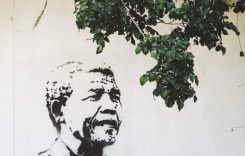An agreement to reduce violence and withdraw US troops could be signed on February 29 in Doha. This would be a step forward, but not without risks for civil peace in the country.
This war was the longest in the history of the United States: Afghanistan lasted 18 years. More than WWII (less than 4 years), more than the Korean War (3 years), more than the Iraq War (9 years) and even more than the official duration (8 years) of the Vietnam War , the beginning of which is certainly difficult to date.
Friday, February 21, the US administration and the Taliban announced that they would sign an agreement on February 29, paving the way for “a significant reduction” in violence, the release of prisoners, the withdrawal of foreign troops. In itself, this is good news. The United States went to war in 2001 to destroy Al Qaeda, the organization responsible for the September 11 attacks. This objective has been fulfilled. The man who led Al Qaeda in 2001, Osama bin Laden, was killed in Pakistan; the threat posed by this somewhat nebulous terrorist organization has been reduced. And Daesh, who replaced him in the role of public enemy number one in the United States, is not a friend of the Taliban, on the contrary: the latter are trying to push back”Islamic State in Khorasan” for several years.
The Taliban fear Daesh, from which they are also quite distant ideologically. They do not dream of a great international Salafist caliphate and they do not intend to massacre all the Shiites. For the United States, they share the same enemy as them and are therefore once again presentable. The time is long gone when George Bush denounced the fanaticism of the Taliban “who forbid little girls to go to school” .
The ghost of Vietnam
The February 29 agreement, if signed, will only be the first step in the peace process. And the risk is great that the American withdrawal does not lead to a civil war, between the legal power in Kabul (resulting from an election certainly quite imperfect) and the Taliban who do not recognize it. Will Donald Trump and his administration seek sufficient guarantees for peace to return to Afghanistan on a lasting basis? Nobody believes too much, given the personality of the American president, but also the experience of the past.
The memory of how the war in Vietnam ended in 1973, in particular, remains in everyone’s mind. Despite the agreement with the Vietcong, which had been discreetly negotiated by Henry Kissinger during informal meetings in Paris, the Communists had two years later swallowed the south and released the power of President Nguyen van Thieu. Officially, they had promised not to dismiss him; unofficially, it is said, they had granted Kissinger a simple “decency period” of two years before taking control of the whole country …
Next steps
When the war in Afghanistan broke out, in the aftermath of September 11, 2001, George Bush had vowed to rid not only Al-Qeda, but also the Taliban who had protected him. But despite the rapid fall of their regime in Kabul, the latter remained masters of much of the territory. The United States, helped by other countries (such as France until 2014), kept tens of thousands of soldiers on the spot for years, in vain: the Taliban always remained powerful, with the support of a part of the population and that, certainly never openly assumed, of neighboring Pakistan.
Donald Trump has arrived at the White House. Many of his national security advisers then encouraged him to continue the policy of his predecessors, even to increase the number of ground troops. But the new president, who regularly criticizes “endless wars” , remained focused on his goal: to bring the “boys” home.
Talks were started with the enemy Taliban in Doha. In September, Donald Trump was even ready to receive their representatives at Camp David, the country residence of the President of the United States, but he gave up after an attack resulting in the death of an American soldier (politically, the proximity of this meeting with the anniversary of September 11 did not help either). The discussions stopped dead, then they resumed cahin-caha to lead to the announcement of a compromise which is still far from being a peace agreement strictly speaking.
The first is to “significantly reduce” the violence (the word “cease-fire” was refused by the Taliban) and to ensure that this decline can last. If so, the Taliban prisoners will be released and “inter-Afghan talks” will be launched between the rebels and the government in Kabul, which has been anxious to follow these Taliban-US negotiations, which can easily be understood. The gradual withdrawal of American troops will only come in a second step. Will Washington then let go of Kabul’s power? The scenario, as we have seen, cannot be excluded. Because the Americans also remember that Vietnam, once it became communist, posed no particular national security problem for them.










